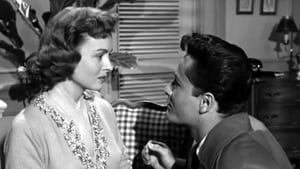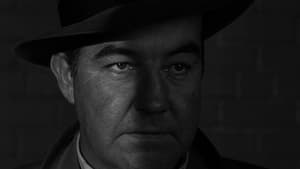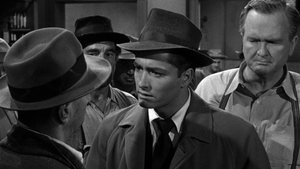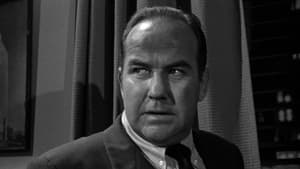Video Sources 0 Views
- Watch trailer
- Scandal Sheet 1952 Colorized

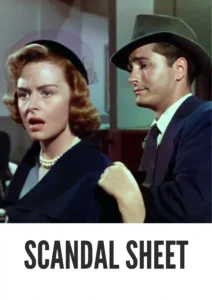
Synopsis
Table of Contents
Toggle
Dive into the gritty world of tabloid journalism with Scandal Sheet, a compelling crime drama from 1952, now brilliantly colorized to bring its stark narrative to life. Starring Broderick Crawford and Donna Reed, this film explores the cutthroat tactics and moral compromises behind sensational headlines. Perfect for fans of hard-boiled stories and those fascinated by the dark side of the press, this HD download offers a visually stunning and emotionally resonant experience.
Scandal Sheet centers on Mark Chapman (Broderick Crawford), the ruthless editor of a sensationalist New York tabloid called The New York Express. Chapman is dedicated to increasing circulation at any cost, employing aggressive reporting and scandalous stories. His methods bring him success but also create enemies.
The narrative takes a dark turn when a woman is murdered, and all evidence points to Chapman himself. As the police investigation intensifies, Chapman must use his own journalistic skills to clear his name, all while confronting his troubled past. The murdered woman is revealed to be someone from his earlier life, adding layers of complexity to the case. The film delves into themes of guilt, redemption, and the ethical dilemmas faced by those in the media. As Chapman investigates, he enlists the help of his dedicated reporter, Julie Allison (Donna Reed), who begins to uncover the truth. The tension builds as they navigate a web of deceit, betrayal, and long-hidden secrets. Scandal Sheet delivers a gripping narrative that keeps you guessing until the very end, with twists that expose the dark underbelly of the tabloid world.
The film features a powerful cast that brings depth and authenticity to this hard-hitting story:
-
Broderick Crawford as Mark Chapman
-
Donna Reed as Julie Allison
-
John Derek as Steve McCleary
-
Rosemary DeCamp as Charlotte Grant
-
Henry O’Neill as Judge Randall
Scandal Sheet fits squarely into the crime drama genre, with strong elements of film noir that highlight its dark themes, moral ambiguities, and stark visual style. The film’s exploration of ethical compromises and the consequences of ruthless ambition adds depth to the genre.
Released in 1952, Scandal Sheet reflects the growing influence and sensationalism of tabloid journalism in American society. The film offers a critical look at the methods used by these publications to capture public attention, often at the expense of truth and integrity. During this period, the media landscape was rapidly evolving, and the film serves as a commentary on the changing dynamics and ethical challenges within the industry. The film’s portrayal of the newspaper business provides insight into the societal concerns and moral questions surrounding the press during the mid-20th century.
This colorized version of Scandal Sheet has been meticulously enhanced, employing modern digital techniques to bring a new visual dimension to the film. The colorization process involved careful analysis of the original black and white footage, with attention to historical accuracy and the film’s original noir atmosphere. Advanced algorithms were used to select appropriate color palettes, enhancing the visual storytelling and bringing out nuanced details in the sets, costumes, and character expressions. This restoration not only makes the film more accessible to contemporary audiences but also preserves its timeless narrative for future generations. The result is a viewing experience that respects the original artistic vision while adding a fresh, engaging layer of visual richness.
-
: Phil Karlson
-
: Eugene Ling, James Poe, and Philip Yordan
-
: The Dark Page by Samuel Fuller
-
: Burnett Guffey
-
: Viola Lawrence
-
: Columbia Pictures
-
: Columbia Pictures
-
: 82 minutes
-
: MP4
-
: HD (1080p)
-
: Compatible with most devices, including smartphones, tablets, computers, and smart TVs.
Scandal Sheet (1952) is praised for its sharp direction, strong performances, and compelling exploration of journalistic ethics. Critics have noted its fast-paced narrative and its insightful portrayal of the tabloid industry. The film remains a relevant and engaging commentary on the power and responsibility of the media.
-
: What is Scandal Sheet about?
-
A: Scandal Sheet is a crime drama about a newspaper editor who becomes the prime suspect in a murder case.
-
-
: Is Scandal Sheet (1952) a film noir?
-
A: Yes, it incorporates many elements of film noir, including dark themes, moral ambiguity, and stark visual style.
-
-
: Is this version of Scandal Sheet colorized?
-
A: Yes, this version has been professionally colorized to enhance the viewing experience.
-
-
: What makes Scandal Sheet interesting for fans of crime dramas?
-
A: Its exploration of journalistic ethics, suspenseful plot, and strong performances make it a standout in the genre.
-
-
: What is the download format?
-
A: The download format is MP4, which is compatible with most devices.
-
-
: What resolution is the download?
-
A: The resolution is HD (1080p), providing a high-quality viewing experience.
-
Watch Scandal Sheet Today!
